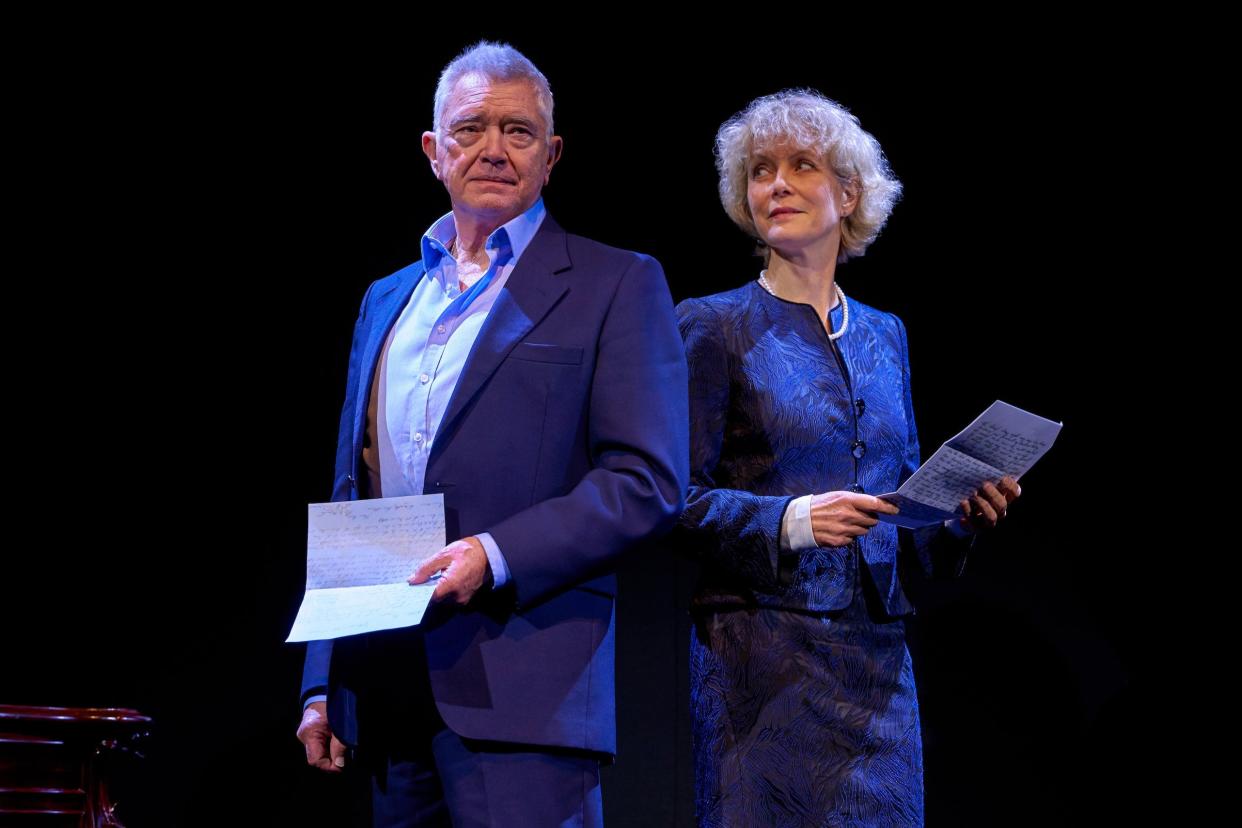Love Letters at Theatre Royal Haymarket review: trite, self-satisfied, but it works

Martin Shaw & Jenny Seagrove in Love Letters at the Theatre Royal Haymarket
(Paul Coltas)A play in which two seated characters read out a lifetime’s correspondence, requiring no set, costumes or even rehearsal, Love Letters is a trite, self-satisfied slice of haute bourgeois Americana that’s become a celebrity vehicle. It’s been an easy gig on Broadway and in London for stars with a professional or personal frisson, and now Martin Shaw and Jenny Seagrove, co-stars in Judge John Deed, take their turn.
I expected to hate A R Gurney’s 1988 play yet again but this year has forced us all to re-examine our prejudices. Love Letters turns out to be an ideal show to rehearse, produce and perform under Covid restrictions. And the dearth of more dazzling or challenging material right now makes you appreciate the play’s economy and the quiet grace of the writing.
From an invitation to a second-grade birthday party in 1937, it follows the vacillating but enduring relationship of Andrew Makepeace Ladd III and Melissa Gardner over five decades. She’s rich, flighty and artistic, prone to divorce and alcoholism. He’s stolid, dutiful and set on a course: Yale, the Navy, the law, a ‘liberal’ Republican senatorship (much of the play now sounds dated).
They spend years almost but not quite having sex and long periods ignoring each other. The way the relationship ebbs and flows from teenage ardour to token Christmas cards to belated passion is nicely observed. Seagrove gets the zingers - threatening to ‘moon’ Andrew’s family if he ever sends her another smug round-robin letter. Shaw plays the silences.
Roy Marsden’s production is unexciting but polished. I doubt he, the actors, producer Bill Kenwright or the Haymarket Theatre – and god, it’s a delight to be back inside that gorgeous auditorium – are making money out of this. Instead, they’re assuring a vital sector of the audience for London theatre that it’s safe to come back. Whatever the failings of the play, we should be glad of that.
To Feb 7, trh.co.uk


